This post is also available in: Deutsch
Living abroad for a while, getting to know a new culture and gaining some valuable international work experience? You can do it all at NORMA Group as part of a Bubble Assignment. The goal of these assignments is to strengthen cooperation among the sites and to help us all learn from each other. Overcoming national and cultural boundaries is a natural side-effect.
David Schneider, who wrote his master’s thesis at NORMA Group in 2018, told us about his tasks as a Simulation Engineer at the company two and a half years ago. He has now been in China for almost three months as part of a bubble assignment. In this interview, he talks about his experience on site and explains how his view of NORMA Group has altered as a result of his stay abroad.
David, how did your Bubble Assignment come about?
In my area of responsibility, I have a colleague in Serbia, another in China and one in Germany. We operate globally – employees from every department and every location can come to us with their questions.
Given my global role, intercultural competence is particularly important. The Bubble Assignment was the perfect opportunity for me to become acquainted with other locations and expand my intercultural skills. I worked at the Qingdao site from the beginning of April to mid-May and in Wuxi until the end of June. I also visited the plant in Changzhou twice during my stay in China.
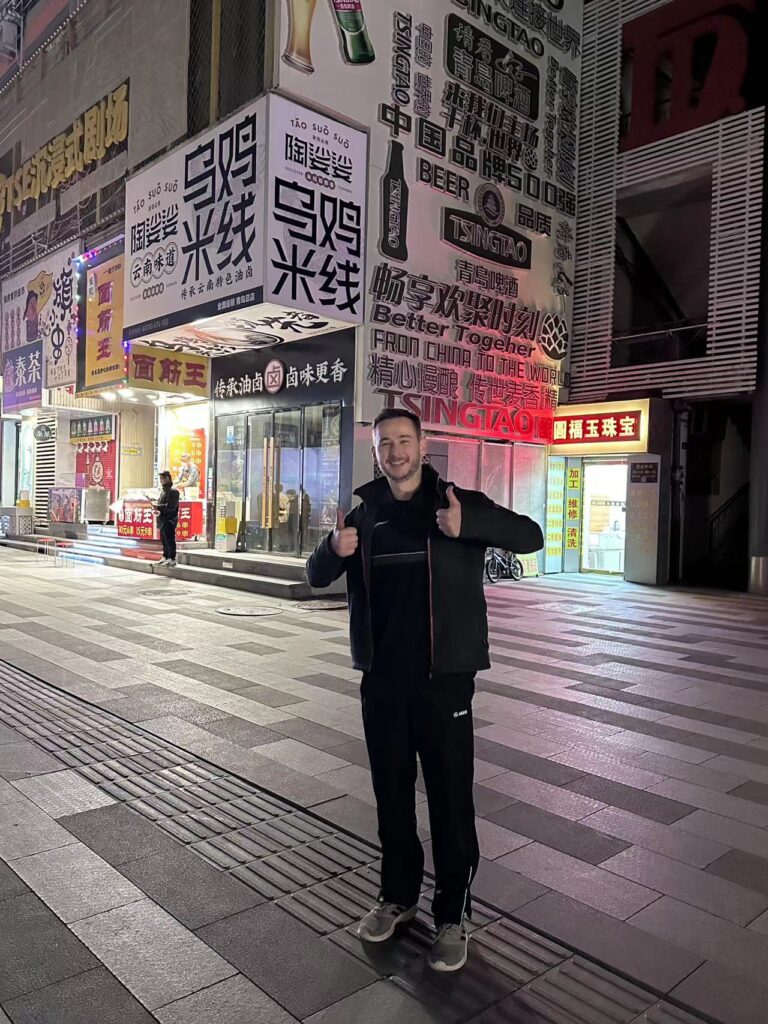
My goal was to increase the level of cooperation with the locations by establishing contacts and gaining a better understanding of what support is needed locally.
What were your tasks at the various sites?
As a Simulation Engineer, I work closely with a number of different departments. I wanted to try to better understand the work processes of the product engineers as a way of improving long-term collaboration. At the same time, I continued to support the Simulation department, which was an exciting and challenging combination.
Together with my colleagues, I conducted four on-site trainings on topics such as simulations at NORMA Group, suction jet pumps and pressure losses in pipes and connectors. On site, I was able to respond specifically to the questions that were being asked by the ten to fifteen participants and make the sessions interactive.
“My local colleagues actively supported me in every way, both during the working day and in my free time.”
When I was planning a trip, for example, they helped me with the booking, because the local apps are almost exclusively in Chinese.
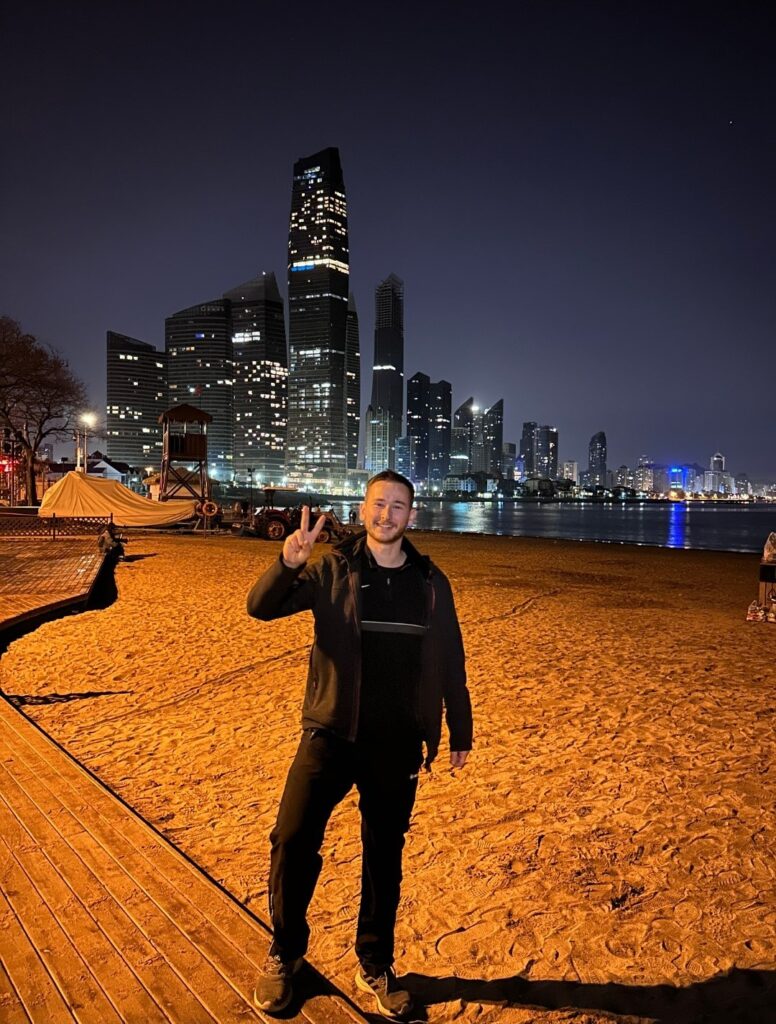
How does your work routine in Germany differ from what you experienced in China?
In China, there are fixed working hours, from 9 a.m. to 12 noon and from 1 p.m. to 5:30 p.m.. I had to make major adjustments to my usual working day, because I generally start my working day at 7:30 a.m. at the latest.
Working from home is also rare in China, something that contributes to a livelier atmosphere in the office. Being in the office also facilitated the exchange of ideas and information at the workplace and ensured shorter communication paths.
What insights have you gained for your daily work in Germany?
My time in China has given me a deeper understanding of intercultural communication and cooperation. I have learned how important it is to be flexible and adaptable in order to work effectively in an international environment.
I have also gained valuable insights into the different approaches to work and the various cultures, which I can now integrate into my everyday work in order to improve the support required for the departments.
And what have you been doing in your free time?
Quite a bit, actually. In Qingdao, I sometimes took a taxi at 5:30 a.m. so that I could play with a beach volleyball group from 6 a.m. to 7:30 a.m. and then heading off to work. There wasn’t much time left in the evenings during the week, because I usually went to bed early.
I traveled a lot at weekends and on public holidays. I was in Beijing, on the Great Wall of China, hiking in the mountains with work colleagues and also visited Shanghai and Chongqing.
In Wuxi, I often went to indoor volleyball training after work and trained with various groups, including a hobby mixed group and a club with many Japanese players.
I also had the opportunity to play table tennis in both cities. I played table tennis actively in my youth, but as a young player I could never have imagined having the opportunity to play in China.
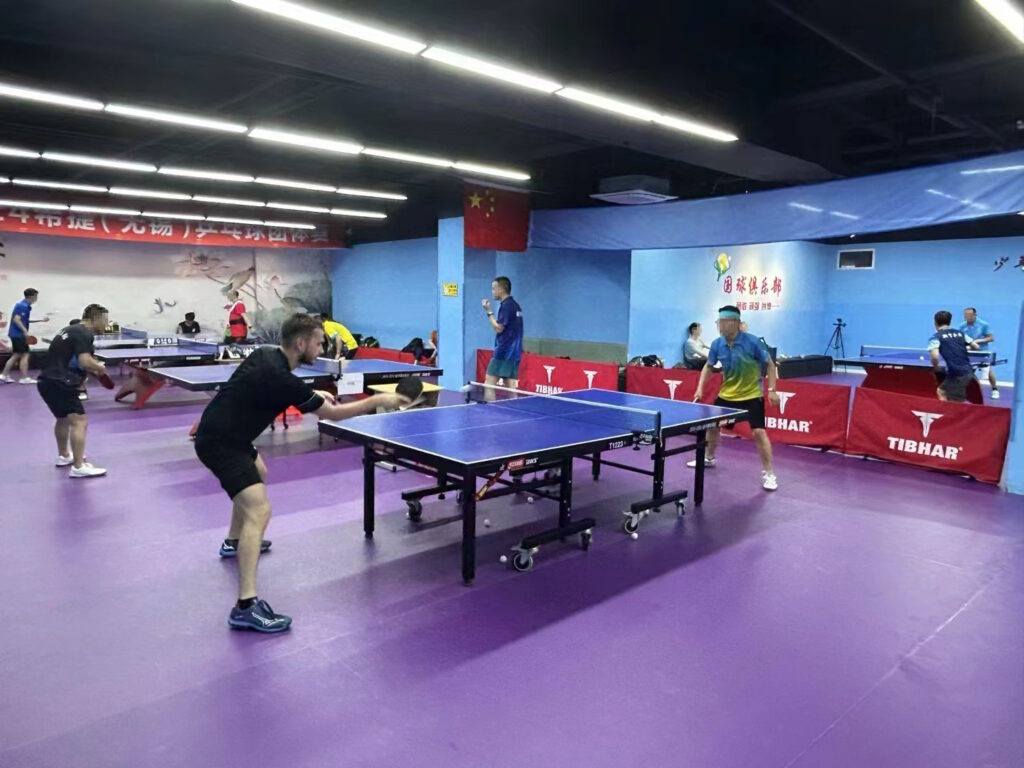
I’ve been involved in everything from casual lunchtime rounds to training sessions with players who have played in youth teams that are currently ranked fourth in the world. Table tennis is a real national sport in China and some people were surprised that I, as a European, was able to keep up well. The local people were very interested and open.
Has the Bubble Assignment changed your perspective of NORMA Group?
Definitely! I have first-hand experience when it comes to the challenges and opportunities of global collaboration and have seen how committed our teams throughout the world are to their work.
“This experience has shown me that NORMA Group is a dynamic and versatile company that is able to adapt to different markets and cultures.”
I am very grateful to the colleagues involved – both the team here in Maintal for their support and the team in China for the warm welcome and the great time there.
What advice would you give to anyone who might be planning a Bubble Assignment?
My most important advice is to have an open mind and to be curious. Take the opportunity to learn about new cultures and approaches to work and be prepared to adapt and step out of your comfort zone.
Preparation is also crucial: Find out about the cultural background and requirements of the host country before you start your assignment. Network with local colleagues at an early stage to ensure a smooth transition.
And lastly: Be flexible – not everything will go as planned, but that’s part of the experience!
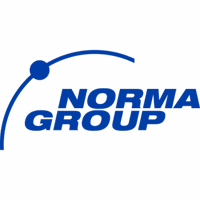
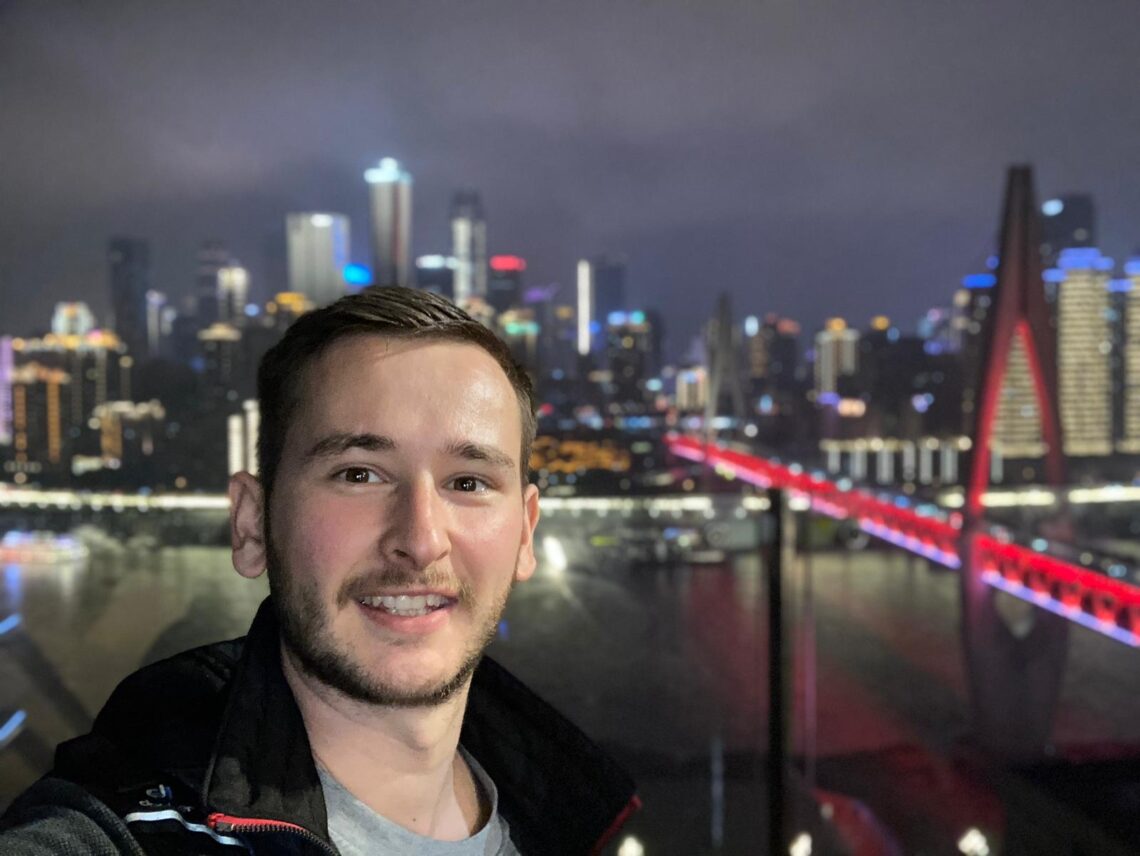



2 responses to ““An excellent opportunity to expand your intercultural competence””
William
I am a manufacturer of plastic compression fittings and irrigation accessories from Hebei, China.Our factory has over 20 years of production experience. In China, our products have a wide range of sales channels. Our company also has a price advantage. I want to know if there is a possibility of cooperation between us?
Kim Bösken NORMA Group
Hello William, thank you for your interest in NORMA Group! Please use our official contact form on our website for business inquiries: https://www.normagroup.com/corp/en/contact/ Best regards!